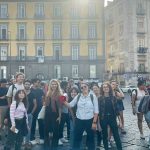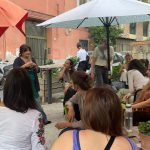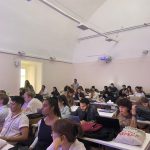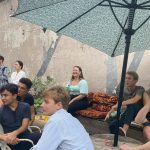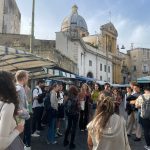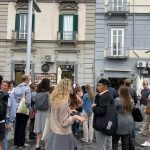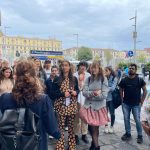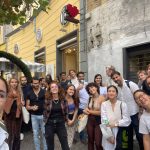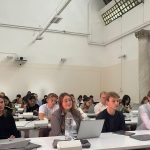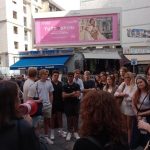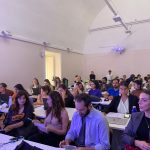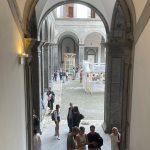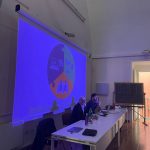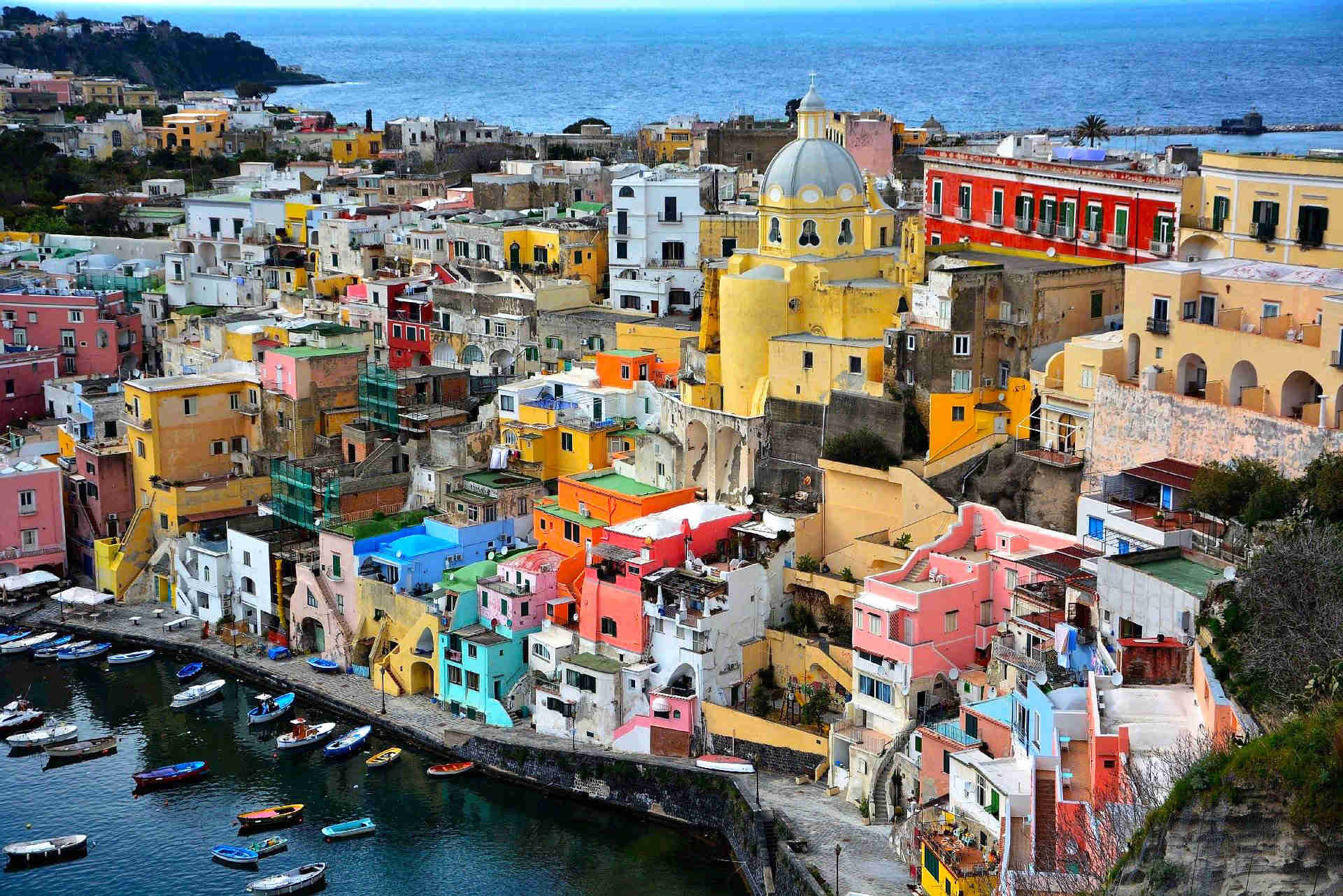
Rethinking Food Systems in the Anthropocene
The Aurora Hackathon “Rethinking Food Systems in the Anthropocene” – organized by Ramon Rispoli and Adam Arvidsson, with the collaboration of Benedetta Toledo and Cristina Trey – was held from Monday 23 to Friday 27 October 2023 in Palazzo Gravina. The main goal of this activity was to co-create conceptual solutions to rethink the food economy of a specific area of Naples, drawing inspiration from university seminars, and workshops hosted by representatives of sustainable entrepreneurial local activities (Stefania Salvetti – The Florist Bar, Stella Pirrò – It’s Cafè) and from on-field excursions conducted in Pignasecca, Piazza Garibaldi, O’ Buvero and Rione Sanità local markets.
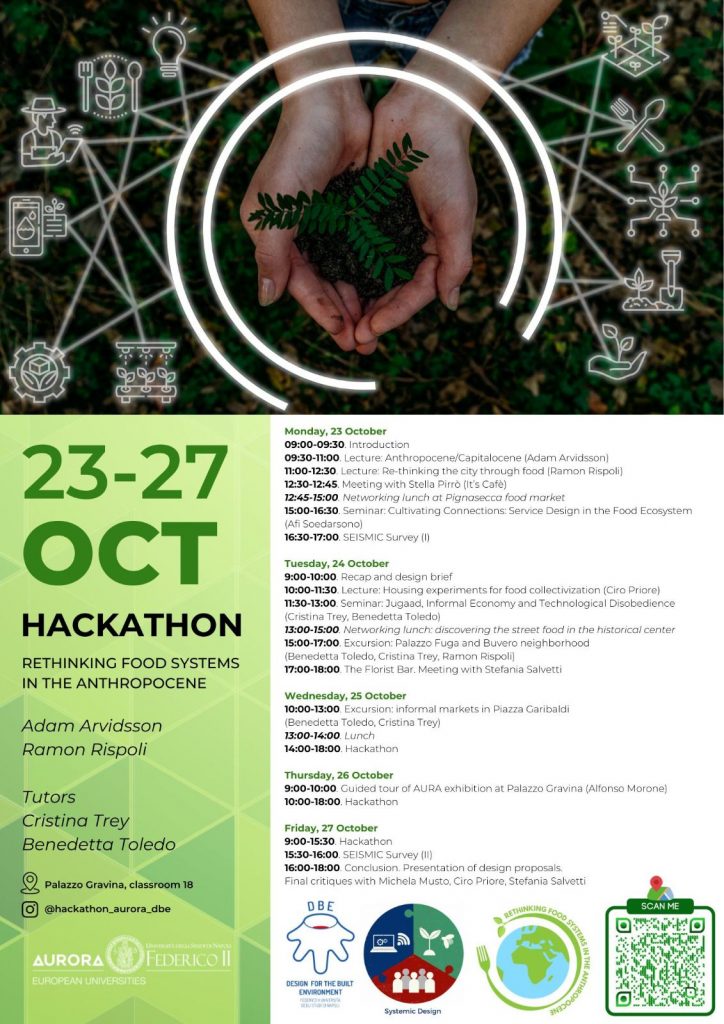
The following subjects were covered in the lectures and seminars: Anthropocene/Capitalocene (by Adam Arvidsson); Rethinking the City through Food (by Ramon Rispoli); Service Design in the Food Ecosystem (by Afi Soedarsono); Housing experiments for food collectivization (by Ciro Priore); Jugaad, Informal Economy and Technological Disobedience (by Benedetta Toledo, Cristina Trey).
According to the hackathon design challenge, the participants had to develop a design proposal to guarantee ecological resilience, economic sustainability for producers and consumers, and organizational feasibility. The long-term goal would be the generation of new communities involving consumers and producers in a specific area of Naples, around Palazzo Fuga, which was the main building involved in the design proposals.
Moreover, design proposals had to include:
– sustainable and community-based solutions for urban gardening (community gardens, vertical farms, and the like);
– solutions for waste reduction based on circularity (composting, recycling, upcycling, etc.);
– physical and digital spaces able to connect producers and consumers in a direct way (farmers’ markets, consumers’ groups, apps and digital platforms);
– sense-making strategies (promotion of local food and recipes; collective events, initiatives, and campaigns related to food, also as a vehicle for social and cultural integration, community building, and cooperation).
The hackathon involved 54 participants, a strong increase compared to the previous two editions: 12 students came from the Copenhagen Business School, 6 students came from the University of Iceland and 36 are enrolled in our Master of Science in “Design for the Built Environment” (DBE) at the University Federico II. The added value of this experience for the students has been the transdisciplinary learning environment, as students were coming not only from all over Europe but also from different backgrounds (Design; Social Sciences; Business Administration; Service Management; Industrial engineering; Environment and Natural Resources, Renewable Energy Sustainability, Economics, and Policy).
On the final day, the students had the opportunity to showcase their project proposals in front of a jury, formed by Ciro Priore (PhD at “La Sapienza” University), Stefania Salvetti (Architect and Social Entrepreneur), and Michela Musto (PhD at “Vanvitelli” University). All the groups focused on the refunctionalization of Palazzo Fuga, developing different proposals related to indoor/outdoor food production (vertical farms, hydroponic systems; community urban gardens), food waste reduction, and multicultural kitchens for social integration. Moreover, all the proposals considered the local ecosystem, trying to find a way to cooperate with local food producers and food markets.
The best projects, selected for their creativity, social innovation, sustainability, economic feasibility, and business model, have been nominated for the “Seismic Awards”, a competition held by CBS (Copenhagen Business School) to promote creative and innovative social entrepreneurs.
The participants’ comments reflect the value of the initiative.
We asked the students what they appreciated from this experience and all the lectures, and some of their answers were:
“I appreciated that all the lectures were extremely related to what would be our project, giving us a practical approach to problem-solving”
“I appreciated that they presented our photos and cases of food from all over the world and markets in Naples, I was also interested in seeing how cities are organized”
“They provided us with a complex and systemic way of thinking, moreover I was interested in the in-depth knowledge gained of Anthropocene and the problems faced in Naples”
“I enjoyed visiting Neapolitan markets and interacting with people because we had some genuine experience, also we could discover the food system in Naples and the culture from the local perspective and get inspiration”
“Seminars gave me amazing insights to the area of Naples, but also by gathering and visiting the markets I understood more about the big and small markets in the city, I enjoyed getting knowledge by experiencing”
“My favorite activity was when we went in “The Florist Bar” because it was interesting to hear a direct experience of the growth of an activity like that, it was inspiring”
